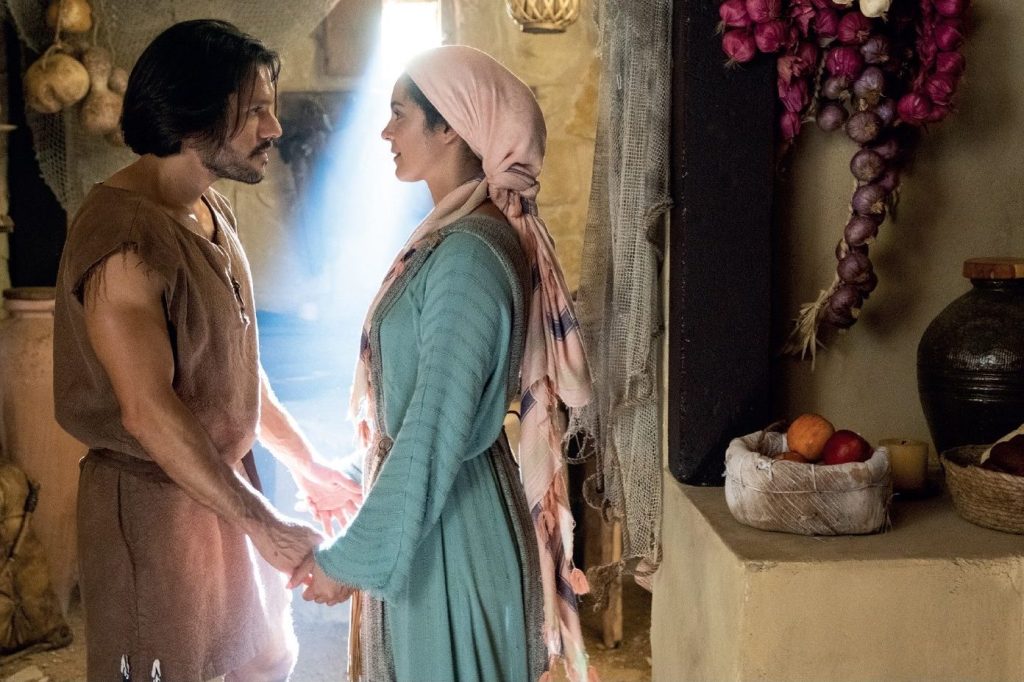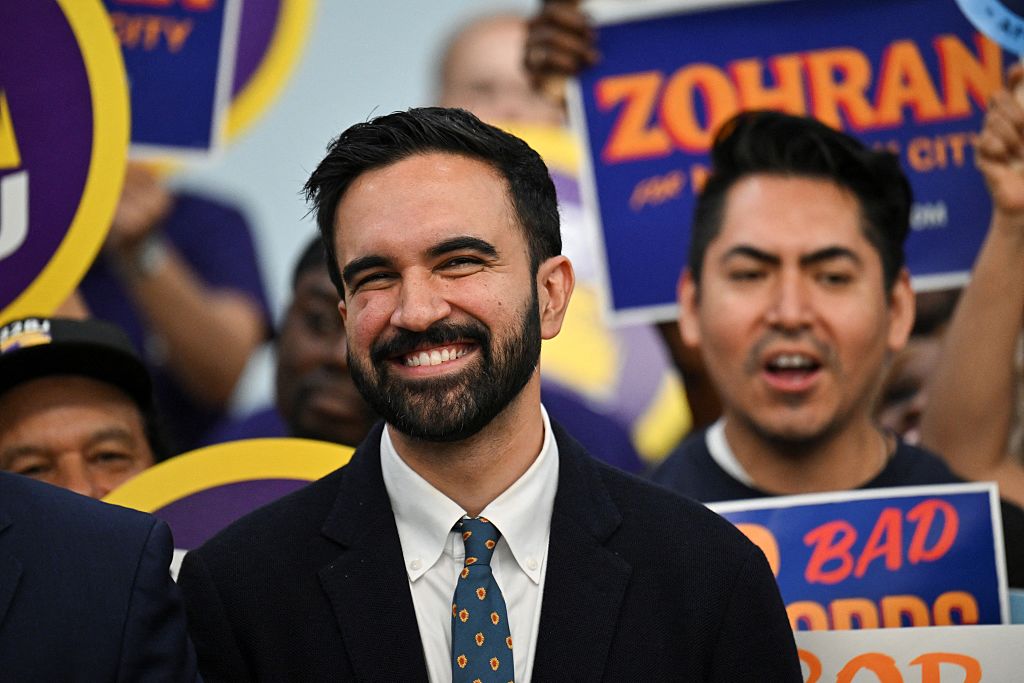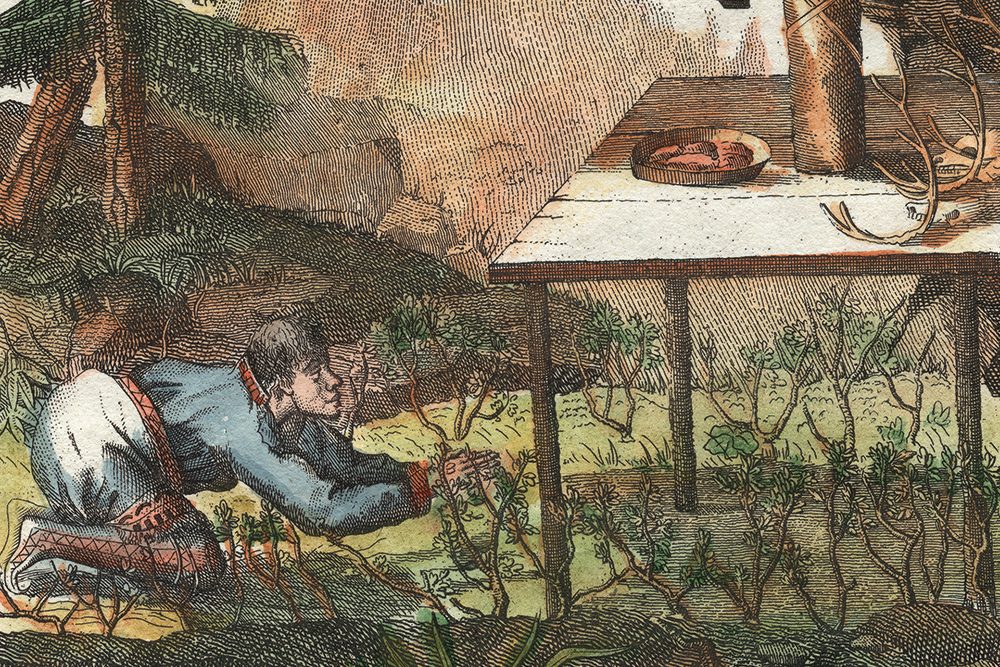Author Matthew Vaughan spent much of his life in the church — and even preached the gospel in Pakistan — but never considered himself a fan of Christian media. “To be honest, most of the films I saw were pretty corny,” he tells me over the phone from his home in Birmingham.
For Vaughan, that changed when he came across an American box-set drama about Jesus called The Chosen. “It kept getting recommended to me by American missionaries,” he says. “They said it was like a Jesus movie for the Netflix generation — well written, well acted and with a good budget behind it.”
Christian viewers vote on which projects should get the green light, then invest their money in them
Vaughan is far from alone. Since 2019, more than 100 million people have watched The Chosen. Many have gone further, and donated to fundraising campaigns to have the show dubbed into new languages and pushed on social media. The reliably secular New York Times calls it a “crowdfunded miracle.”
The man behind much of that success shares its assessment. “We would be remiss if we didn’t say there was at least some revelatory help with the whole crowdfunding idea,” says Neal Harmon, the co-founder of Angel Studios, appearing over Zoom (in piercing HD quality) from his studio in the Mormon heartland of Utah.
Harmon, a devout believer and serial entrepreneur of varying degrees of success, first stumbled across the crowdfunding idea behind The Chosen after the dramatic collapse of his previous venture VidAngel — a special “filter” service that would remove unsuitable scenes from shows and films on Netflix and Amazon.
VidAngel might have been just the ticket for God-fearing families across middle America. But unsurprisingly, the Hollywood studios weren’t so keen. After a long-running court battle pitting copyright law against free speech, Disney finally sued VidAngel for $62.4 million in 2016 (later negotiated down to $9.9 million).
Faced with bankruptcy, Harmon and his co-founders (which include three of his nine brothers) had one last card to play. VidAngel had partnered with an evangelical film-maker who had been looking to make a series about the life of Jesus, and trying to raise money for the project.
Given that preview episodes of The Chosen had been well received, Harmon had an idea: let people pay for advance copies which they could then gift to friends and family. The original idea was received well, but there was something Harmon didn’t anticipate: people weren’t just willing to pay for copies for their friends, but for total strangers too.
Four years later, the company now known as Angel Studios has refined the model that it calls “pay it forward.” Unlike other streaming platforms, the studio gives much of its content away, via an app that can be downloaded in any country. If viewers like what they see, they are encouraged to donate to spread the good word.
But there’s another twist. Angel Studios also recruits viewers to join what it calls its Angel Guild: essentially, a giant focus group of Christian viewers who can vote on which projects should get the green light, and then invest their money in bringing those films to market. Unlike “pay it forward,” the intention isn’t just philanthropic; if the films do well, their backers will share the windfall.
As of this fall, Angel’s followers have plowed some $60 million into more than twenty projects. Successful ventures (at least in terms of funding) include Biblical epics such as Testament, nature documentaries celebrating creation, Christian-inspired sci-fi and even a profanity-free stand-up comedy show. Its crowdfunders regularly hit their targets.
“Angel’s model has given a lot of Christian film-makers real hope,” says Paul Syrstad, a thirty-one-year-old actor-turned-director from Bromley in London. Syrstad directed and produced Testament: The Parables Retold, one of the first feature films to get funding from the guild. He has just raised another $900,000 for a follow-up project.
Yet for all Angel’s popularity among the faithful, Neal Harmon bristles at the idea that the project is a religious venture. “The industry likes to call us faith-based, but we don’t really use that term ourselves,” he says. His interpretation is that Bible stories have been central to Hollywood for decades.
“Think about films like The Ten Commandment with Charlton Heston,” he enthuses. “Those movies were the Marvel franchises of their time.” Rather than creating niche content for church-going audiences, Harmon says, Angel’s mission is to bring these “timeless stories” back to mainstream cinema.
The studio backs non-religious content too, provided it meets the Angel tagline of “stories that amplify light.” If the leadership team is satisfied that a proposed film meets that test — namely that it doesn’t contain pornographic or harmful content — then it can go to the guild for their verdict. Ultimately, it will be their choice whether the film gets made.
For Harmon, it’s this deliberately democratic bent that defines the Angel ethos. “We wanted to have a libertarian model where people could make their own choices about what kind of content they want to see,” he says. If viewers can prove there is a market for Angel’s content, they should be able to make those films happen.
The model isn’t without its controversies. Earlier this year, guild members invested $5 million to fund a cinema release for a film called Sound of Freedom — a gun-toting thriller about a former government agent inspired by his faith to liberate victims of child-trafficking — which had been dropped by Disney. The film went on to gross $200 million in cinemas, although not without triggering another chapter in America’s long-running culture war.
To its opponents, Sound of Freedom was dangerous agitprop, stoking the online conspiracy theory that America’s political elites turned a blind eye to child abuse. When the film became an internet sensation, mainstream news outlets tasked reporters with debunking its claim to be “based on a true story.”
After the film received the endorsement of Donald Trump, some more fervent MAGA activists accused mainstream cinema chains of suppressing it — posting photos of empty seats in theaters that had been described as “sold out” as proof. Ironically, the problem was partly the result of the “pay it forward” campaign: Angel donors had paid for so many free tickets that some went unclaimed.
Despite the inevitable controversy that comes with a film about sex-trafficking, Harmon remains unabashed in his support for Sound of Freedom. “Obviously it’s not a movie for the whole family,” he concedes. But it is, he maintains, a film that brings light. He is currently working with the director on a second movie: a biopic about the first American to be made a saint in the Catholic Church.
Closer to home, Sound of Freedom also became the first Angel feature to have a West End première and a UK cinema run. Throughout September, more than 200,000 people saw the film in cinemas across Britain. When Jeffrey Harmon, Neal’s brother, came to London, he claims to have been stopped on the Tube by fans who noticed his Angel Studios t-shirt.
Just how many followers does Angel have in the UK? While its app has been downloaded ten million times globally, the company doesn’t provide a detailed breakdown on which countries have driven that number. Harmon tells me that Angel has “tens of thousands” of donors on this side of the Atlantic.
In the meantime, the Angel catalogue is growing quickly. Last month, it released After Death, a documentary about near-death experiences. Next month, it has the cinema launch of The Shift, a sci-fi thriller inspired by the Book of Job. Both will likely be on the Angel app, including in the UK, after an initial theater release.
Then there’s The Chosen, which continues to make in-roads internationally. Last month, a Sussex-based Christian publisher launched “The Big Church Binge” — a marketing campaign encouraging churches across Britain to organize free screenings of season three. Two hundred churches signed up to the launch event.
Expect a flurry of publicity, too, around the fourth season, which will land early next year. One person close to the project predicts there will be a celebrity-studded Leicester Square première. To date, The Chosen’s most famous UK fan is Nicky Gumbel — founder of the Alpha Course.
For the Harmon brothers and Angel Studios, it’s all a long way from the controversy of their last venture — the “sanitized streaming service” shut down by Disney.
Back then, the secular streaming platforms took fire at Angel Studios for pinching its content. Now the Harmons are setting their sights on something much more valuable altogether: their viewers.
This article was originally published in The Spectator’s UK magazine. Subscribe to the World edition here.


























Leave a Reply